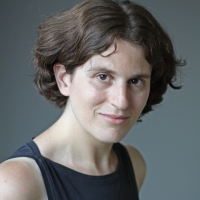My favorite crime novel series, I've come to realize, take sustained breaks between installments. The book-a-year crew don't necessarily produce perpetual pablum, but the annual schedule rewards consistency to the point of sameness, and entertainment value over more substantive measures.

More breathing room between books, however, gives writers more time to infuse their series with something extra. Raymond Chandler and Dashiell Hammett cast such giant shadows over crime fiction, spawning innumerable imitators and literary descendants, that one forgets each wrote a scant number of books—seven and one—featuring their respective iconic private detectives, Philip Marlowe and Sam Spade. More currently, Sue Grafton is just three books away from Kinsey Millhone's final bow, yet the most recent, W is for Wasted, tackles pharmaceutical fraud and the shabby treatment of the homeless in late-80s California through multiple perspectives, a far cry from the more simplistic, sassy first-person-perspective of A is for Alibi.
Years between novels allows authors to be more judicious in what character developments they track, what technological advancements are relevant to the story, and what changes in society merit proper chronicling. That's why the arrival of a new Martin Cruz Smith novel has import: each time his series detective, Arkady Renko, re-emerges, his struggles within and against his native country of Russia has added freshness.
ADVERTISEMENT
The Cold War-rooted Russia of Gorky Park (1981), the undisputed commercial king of the series, fell away such that its immediate replacements – glasnost, failed coups, the end of Communism – required contemplation and assimilation. Eight years elapsed before the immediate sequel, Polar Star (1989), and Havana Bay (1999) was published seven years after Red Square (1992), reflecting the contradictory stasis and upheaval that marked the Yeltsin era's push for a democracy that, in the end, didn't take root. Now Smith has settled into a one-every-three-years clip, a faster cycle could not fully capture the competing interests and spreading dictatorship that is the Putin regime. Instead, at this pace Smith brings the reader right around to the conflicts of Soviet old, but mutated thanks to added plutocracy.
From the first pungent sentence of his new novel Tatiana: “It was the sort of day that didn't give a damn” – Smith sets up expectations for another monumental clash between Renko's quasi-Byronic complex and the fatalism that infects his fellow citizens and the government. Two significant figures – the Anna Politkovskaya-esque investigative reporter Tatiana Petrovna, and billionaire Grisha Grigorenko (think Boris Berezovsky) – die violently a day apart, she out a sixth-floor window, he shot several times. Renko is quickly warned off of Tatiana's death, closed and classified as a suicide, even getting beaten for his professional nosiness. As a friend of Renko's remarks, “There's a pattern. A journalist is murdered; an unlikely suspect is arrested, tried, and found not guilty. And that's the end of it, except we get the message. Soon there will be no news but their news. They say it's better than a free press, it's a 'responsible' press.”
What the higher-ups seem most scared of, Renko discovers, is how Ms. Petrovna's unreported investigations tied in with Grigorenko's apparent underworld ties, which his brooding, rather whiny son Alexi appears quick to capitalize after the older man's murder. Secret tapes, another mysterious death, and still more threats lead Renko hundreds of miles away from Moscow to the outpost of Kaliningrad, where what ought to be clear is anything of the sort.
Smith is on strong ground so long as Renko remains in Moscow. We see how the years of police work, and fighting authority, have eroded Renko's physical and mental state, and the sense of futility he feels when his brilliant chess-playing teenage ward, Zhenya, declares his desire to join the Army: “If you put a snake in a jar, nine years later he will still be a snake.”

Tatiana begins to falter once Renko arrives in Kaliningrad, afflicted by the same malady of Smith's most recent series work: the setup fails to pay off, submerged in convoluted plot twists and a shaky balance between the main storyline and other subplots. One particular spoiler-heavy revelation made more sense in 1940s film noirs before the advent of latter-day forensic science, despite using bureaucratic delays as explanation. Smith introduces a suspenseful side quest when an impossible-to-decipher piece of code requires breaking, but strains credulity that it could be broken so quickly, and by Zhenya at that, however much his overall genius was established in previous books. Most disappointing of all, the ending feels rushed and only partially plotted out – would everybody really discover they were in the wrong place at the last possible moment, before being imperiled in the right place?
Despite the flat finish, Tatiana conveys how potent a setting Russia remains today, and how little has changed, in terms of the monstrous ways people conduct themselves, since the apex of Soviet rule. When Smith returns with his next Renko novel a few years from now, several more real-life events and political changes will inspire another bout of energetic storytelling. I only hope the next years-long break allows Renko's investigative ruminations to sustain an entire narrative, not just part of one.



